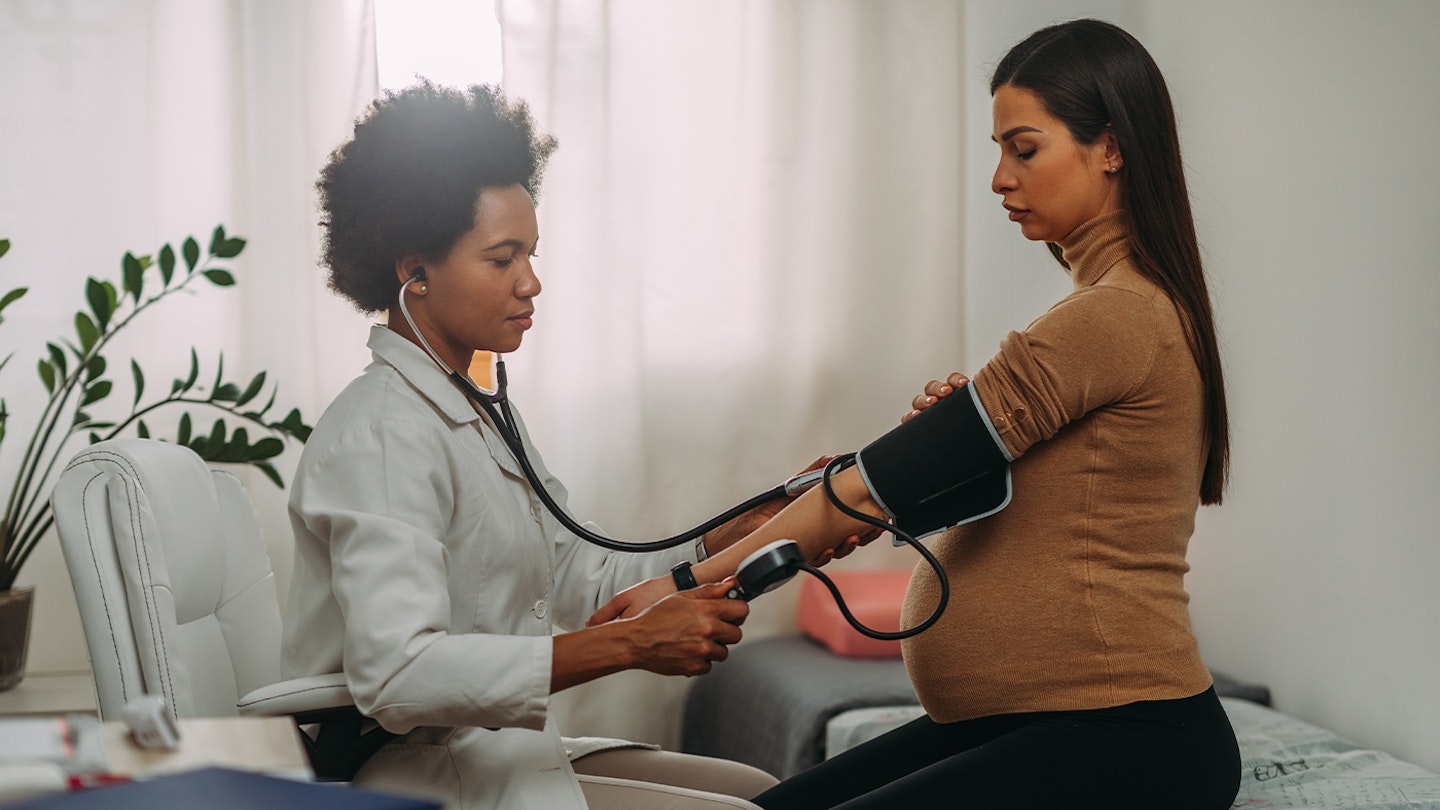Hypertension in pregnancy or high blood pressure as it's more commonly referred to can sometimes be serious in pregnancy. Although it is very common, it can put baby at risk and cause problems during and after delivery.
The good news is that hypertension in pregnancy is both preventable and treatable. Throughout your pregnancy your blood pressure will be closely monitored, and if you develop high blood pressure in pregnancy, you will be closely monitored.
What is hypertension?
Hypertension refers to high blood pressure. It can vary in levels of severity from mild to severe. The different levels of hypertension are listed below with the blood pressure readings you might get:
Mild – 140/90 to 149/99mmHg (this level won't usually require treatment)
Moderate – 150/100 to 159/109mmHg
Severe – 160/110mmHg or higher
What if I have previously suffer from high blood pressure?
If you're currently taking medication for high blood pressure or have previously done so in the past, you should speak to your GP before trying for a baby. If you have already found out you're pregnant, inform your doctor immediately. It may be that they want to change your medication as some blood pressure medications are safe for pregnant women to take as they can reduce blood flow to the placenta, affecting your baby.
According to the NHS, you may also be referred to a specialist during your pregnancy who will be able to monitor you closely as well as discussing potential risks and benefits of available treatments.
What will happen in my pregnancy appointments if I have hypertension?
Your antenatal team will be monitoring your blood pressure closely during pregnancy. If you have hypertension, you and your baby will also be closely monitored to ensure the high blood pressure is not affecting baby's growth.
They will also be checking for the pregnancy condition, pre-eclampsia. You may be asked to provide a urine sample to test for this.
What are the complications of hypertension in pregnancy?
For baby: The biggest risk is preterm delivery (before 37 weeks) as well as low birth weight. This is a baby weighing less than 5 pounds 8 ounces. Mum's high blood pressure can make it difficult for baby to get enough oxygen and nutrients to grow, meaning baby might have to be delivered earlier.
For mum: As well as pre-eclampsia, there's also a heightened risk of having a stroke, placental abruption and you may also have to be induced to start labour.
Ways to reduce high blood pressure in pregnancy
The best thing you can do to keep your blood pressure in the normal range during pregnancy is to stay active and try and exercise during pregnancy. Doing regular physical activity such as walking or swimming when pregnant can help.
Maintaining a balanced diet during your pregnancy can also help keep blood pressure at normal levels, especially by keeping your salt intake low.
